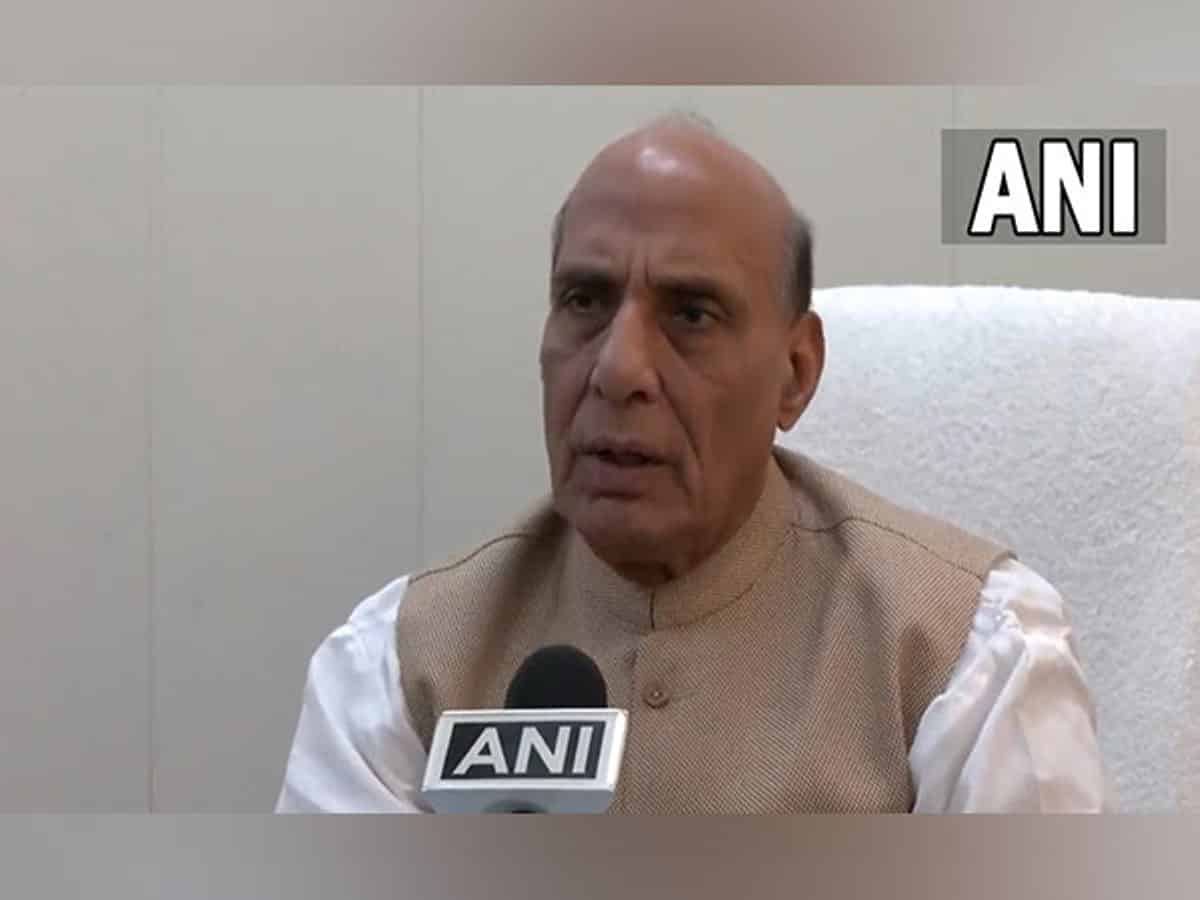
New Delhi: India today stands before the world as an economic, cultural and political power, Defence Minister Rajnath Singh said on Sunday, calling for collaborative efforts of all to achieve Prime Minister Narendra Modi’s dream of making it a developed nation by 2047.
Addressing a gathering at an event organised by All India Malayalee Association (AIMA) here, he also praised the contribution of Kerala in India’s growth story.
“India today stands before the world as an economic, cultural and political power, and Kerala has played a big role in achieving this feat,” Singh was quoted as saying in an official statement issued by his office.
He asserted that due to the efforts of the government led by Prime Minister Modi, India is now among the “top five economies” of the world in terms of GDP.
Citing reports by experts and institutions that India will be among the top three world economies by 2027, Singh exuded confidence that when the country celebrates its 100th year of independence in 2047, “it will become the world’s largest economy”.
He called for collaborative efforts of all states, NGOs and institutions to achieve the prime minister’s dream of making India a developed nation by 2047.
The Defence minister also said Indian culture today is “being recognised and accepted all over the world”.
From greeting with folded hands during the COVID-19 pandemic to International Day of Yoga, people’s interest in the Indian culture has “increased” across the globe, he added.
Singh said India’s respect has increased globally due to its “vast cultural heritage and political unity provided by the Constitution”.
This cultural heritage and political unity was made possible by two great personalities who hailed from Kerala — renowned scholar and philosopher of 8th century Adi Shankaracharya and a top bureaucrat who served under Iron Man of India Sardar Vallabhbhai Patel post-independence, he said.
“Adi Shankaracharya ji united India religiously, culturally and spiritually. VP Menon worked with Sardar Vallabhbhai Patel and integrated the nation politically, for which the present and future generations will forever be in debt. While Adi Shankaracharya ji created the soul of India, VP Menon played a key role in the development of the country’s body,” the Union minister said.
He also spoke on India’s cultural diversity, defining it as a confluence of many religions, castes and sects.
“India is an ocean with which different cultures meet as rivers. A very important stream of this cultural confluence flows from Kerala. The state has a distinct identity on the cultural map of India. The Sanatan culture emerged from Kerala through Adi Shankaracharya ji,” Singh said.
“Christianity and Islam also emerged from the state. It is said that one of the 12 main disciples of Jesus Christ, St. Thomas, came to India and built seven churches in Kerala. The first mosque ‘Cheraman Juma’ was built in Thrissur. This is why it (Kerala) is given the title of ‘God’s own country’,” he was quoted as saying in the statement.
Singh also highlighted the important role played by Kerala in the history of modern India, especially during the freedom struggle.
“From the Non-Cooperation Movement to the Quit India Movement, K Kalappan, the Gandhi of Kerala, played a crucial role during the freedom struggle. He was also a social reformer, who fought for the rights of the underprivileged not only in the state, but the entire country.
“There are many such revolutionary freedom fighters from Kerala who have contributed immensely in ensuring India’s freedom. Another one is Accamma Cherian who was known as the Jhansi Rani of Kerala,” he said.
The Defence minister also remembered Kerala’s social reformers Sadananda Swamiji and Padmanabhan Palpu, saying they dedicated their lives to ensure equality and women rights.
He paid glowing tributes to Narayan Guru who worked for the empowerment of the lower strata of society by connecting them with education, philosophy and science and technology.
Singh made a special mention of the active role played by NGOs, especially AIMA, during the floods in Kerala in 2018, describing their work as extraordinary.
Lauding the contribution of NGOs and civil society organisations in social upliftment, he termed them as a “bridge between the government and the people”.
These organisations play a major role in providing government’s deeper access to the people to ensure their welfare, he added.



